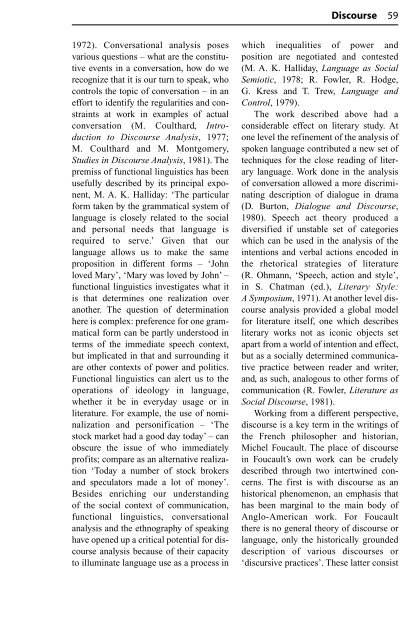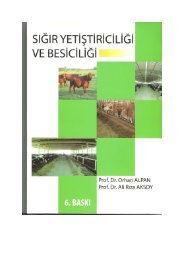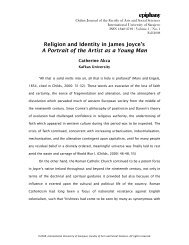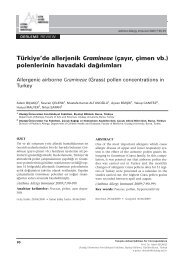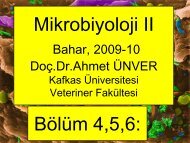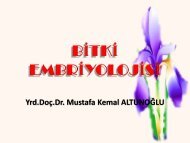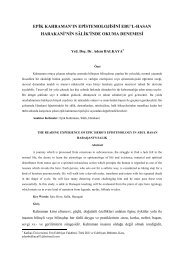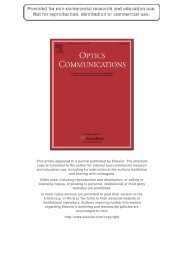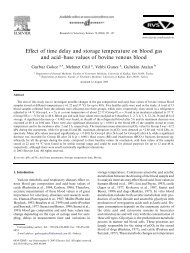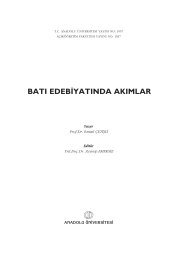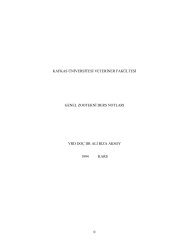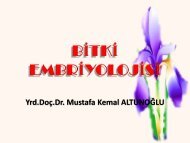The Routledge Dictionary of Literary Terms
The Routledge Dictionary of Literary Terms
The Routledge Dictionary of Literary Terms
You also want an ePaper? Increase the reach of your titles
YUMPU automatically turns print PDFs into web optimized ePapers that Google loves.
1972). Conversational analysis poses<br />
various questions – what are the constitutive<br />
events in a conversation, how do we<br />
recognize that it is our turn to speak, who<br />
controls the topic <strong>of</strong> conversation – in an<br />
effort to identify the regularities and constraints<br />
at work in examples <strong>of</strong> actual<br />
conversation (M. Coulthard, Introduction<br />
to Discourse Analysis, 1977;<br />
M. Coulthard and M. Montgomery,<br />
Studies in Discourse Analysis, 1981). <strong>The</strong><br />
premiss <strong>of</strong> functional linguistics has been<br />
usefully described by its principal exponent,<br />
M. A. K. Halliday: ‘<strong>The</strong> particular<br />
form taken by the grammatical system <strong>of</strong><br />
language is closely related to the social<br />
and personal needs that language is<br />
required to serve.’ Given that our<br />
language allows us to make the same<br />
proposition in different forms – ‘John<br />
loved Mary’, ‘Mary was loved by John’ –<br />
functional linguistics investigates what it<br />
is that determines one realization over<br />
another. <strong>The</strong> question <strong>of</strong> determination<br />
here is complex: preference for one grammatical<br />
form can be partly understood in<br />
terms <strong>of</strong> the immediate speech context,<br />
but implicated in that and surrounding it<br />
are other contexts <strong>of</strong> power and politics.<br />
Functional linguistics can alert us to the<br />
operations <strong>of</strong> ideology in language,<br />
whether it be in everyday usage or in<br />
literature. For example, the use <strong>of</strong> nominalization<br />
and personification – ‘<strong>The</strong><br />
stock market had a good day today’ – can<br />
obscure the issue <strong>of</strong> who immediately<br />
pr<strong>of</strong>its; compare as an alternative realization<br />
‘Today a number <strong>of</strong> stock brokers<br />
and speculators made a lot <strong>of</strong> money’.<br />
Besides enriching our understanding<br />
<strong>of</strong> the social context <strong>of</strong> communication,<br />
functional linguistics, conversational<br />
analysis and the ethnography <strong>of</strong> speaking<br />
have opened up a critical potential for discourse<br />
analysis because <strong>of</strong> their capacity<br />
to illuminate language use as a process in<br />
Discourse 59<br />
which inequalities <strong>of</strong> power and<br />
position are negotiated and contested<br />
(M. A. K. Halliday, Language as Social<br />
Semiotic, 1978; R. Fowler, R. Hodge,<br />
G. Kress and T. Trew, Language and<br />
Control, 1979).<br />
<strong>The</strong> work described above had a<br />
considerable effect on literary study. At<br />
one level the refinement <strong>of</strong> the analysis <strong>of</strong><br />
spoken language contributed a new set <strong>of</strong><br />
techniques for the close reading <strong>of</strong> literary<br />
language. Work done in the analysis<br />
<strong>of</strong> conversation allowed a more discriminating<br />
description <strong>of</strong> dialogue in drama<br />
(D. Burton, Dialogue and Discourse,<br />
1980). Speech act theory produced a<br />
diversified if unstable set <strong>of</strong> categories<br />
which can be used in the analysis <strong>of</strong> the<br />
intentions and verbal actions encoded in<br />
the rhetorical strategies <strong>of</strong> literature<br />
(R. Ohmann, ‘Speech, action and style’,<br />
in S. Chatman (ed.), <strong>Literary</strong> Style:<br />
A Symposium, 1971). At another level discourse<br />
analysis provided a global model<br />
for literature itself, one which describes<br />
literary works not as iconic objects set<br />
apart from a world <strong>of</strong> intention and effect,<br />
but as a socially determined communicative<br />
practice between reader and writer,<br />
and, as such, analogous to other forms <strong>of</strong><br />
communication (R. Fowler, Literature as<br />
Social Discourse, 1981).<br />
Working from a different perspective,<br />
discourse is a key term in the writings <strong>of</strong><br />
the French philosopher and historian,<br />
Michel Foucault. <strong>The</strong> place <strong>of</strong> discourse<br />
in Foucault’s own work can be crudely<br />
described through two intertwined concerns.<br />
<strong>The</strong> first is with discourse as an<br />
historical phenomenon, an emphasis that<br />
has been marginal to the main body <strong>of</strong><br />
Anglo-American work. For Foucault<br />
there is no general theory <strong>of</strong> discourse or<br />
language, only the historically grounded<br />
description <strong>of</strong> various discourses or<br />
‘discursive practices’. <strong>The</strong>se latter consist


